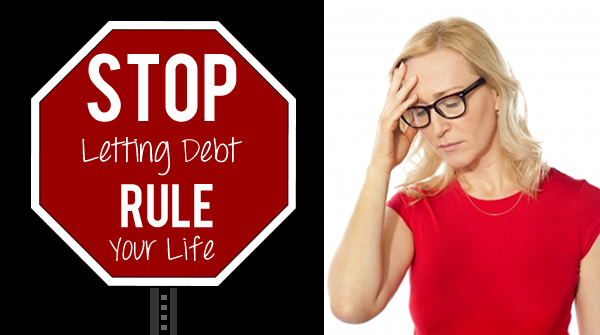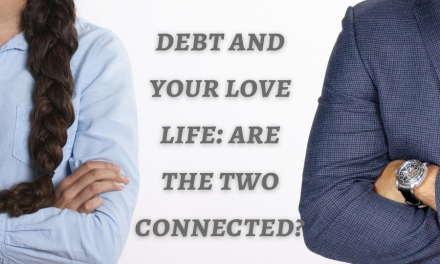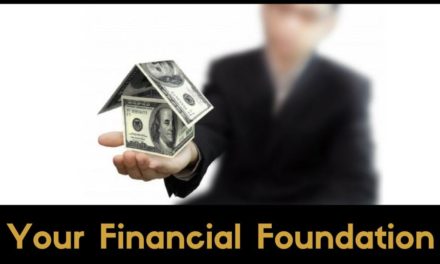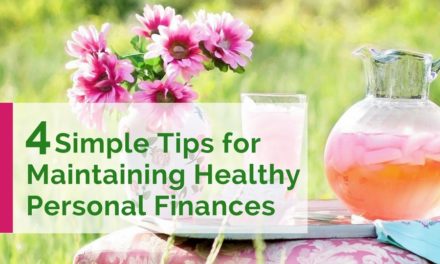When it comes to debt, there are two types of people. The first is happily in debt. They are unaware of the growing danger looming in front of them because they pay their bills and figure everyone has debt.
The second is unhappily in debt. They are aware of the danger and are desperately trying to protect their family’s well-being.
Don’t Let Debt Consume Your Life
Too many people spend all their energy thinking about debt and not in a constructive manner.
They can’t sleep or focus and feel like they are in survival mode 24/7.
They cannot see the sun through the clouds.
This is not a happy way to live.
You need to get out of debt, but you also don’t want to give your power to debt.
You need to be in control, not your debt.
Forgive Yourself for Your Money Mistakes
It’s okay if you feel anger, frustration, regret, remorse and guilt for the choices you made with your money.
Those feelings are certainly normal, but don’t allow yourself to wallow in those emotions. They do not serve you.
They don’t inspire you to take action; they make you feel defeated.
Don’t dwell upon your money mistakes. Acknowledge, learn and move on.
Create an Emergency Fund
This may seem counter intuitive when you have debt to eliminate, but this needs to be a top priority for you.
Why? Because it’s your peace of mind.
One reason why people can’t stop thinking about debt is because they are often so close to falling off their personal fiscal cliff, and it scares them deeply.
Your emergency fund will help you rest a bit easier knowing that you can handle unexpected emergencies without taking on new debt.
Under normal circumstances, I suggest 3-6 months of living expenses, but it may make sense to start out with a lower amount initially, depending on your situation.
I would start with minimally $1000, although ideally one month of expenses would be better. Hopefully, you are in a position to pay more than the minimum payments on your credit cards.
If so, then take a percentage of what you pay above your minimum payments and automatically deposit it into a savings account.
Once you reach $1000 (or your ideal number), you can redirect all your extra money back to your debt repayments.
It’s also tax season time, so if you expect a large tax refund, set aside a portion for your emergency fund and the rest goes towards your debt. Once your debt is repaid, you can build your emergency fund to 3-6 months of expenses.
Set Goals to Give You Something Positive to Focus On
It’s easy to revisit old decisions and wish you could go back in time and change them.
Again, it’s good to understand the reason and emotions that drove your old way of handling money, but it’s easy to get stuck if you keep rehashing past decisions.
The best cure is to have something to look forward to achieving.
Goals give your money purpose and help make it easier for you to make smart money choices. It also gives you something to dream about and work towards that empowers you.
Focus your time and energy on your goals and your vision of life after debt.
Review Progress but Don’t Obsess
It’s great that you have a plan in place to eliminate your debt, but don’t become obsessed with how you’re doing either. Whether it’s comparing your progress against others in debt or even checking your accounts too frequently, those actions generally undermine, rather than motivate.
Remember, the only debt that matters is your own and even then, it shouldn’t be your entire life.
It’s okay to give yourself a bit of breathing room and distance from your debt.
Have Fun!
Yes, you read that right—have fun! No, I’m not giving you permission to go crazy and spend money you don’t have, but too many people equate debt to a grim way of life.
It’s true it may be a bit more austere than what you previously enjoyed, but fun is not off the table. You just have to be a bit more creative.
- Dust off those board games and schedule a weekly or monthly family game night
- Pack a lunch and spend the day at the park or beach
- Go sledding and enjoy a mug of hot chocolate when you get home
- Enjoy free events and activities that your community and/or your place of worship offer
- Borrow a movie from your library
- In lieu of gifts, ask for experiences: tickets to games or museums or amusement parks, etc.
A New Debt Perspective
You may have made some money mistakes in the past but that does not make you a bad person.
I find that many people, consciously or unconsciously, feel they are “bad people” and let debt rule their lives as part of their punishment.
Please stop.
Everyone makes money mistakes but not everyone does something about their mistakes. You are. Take pride in the fact that you are taking the hard steps that protect your family and ultimately will give you a better life.
Debt is just merely one piece of your life’s puzzle. Don’t turn it into the biggest or most important piece because it’s not.





